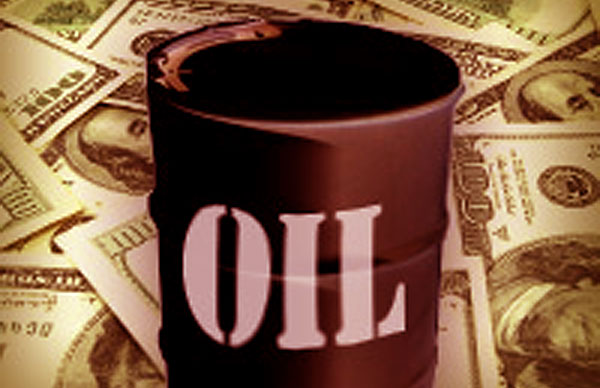Podcast: Play in new window | Download
Subscribe: RSS

Oil: we can afford to buy it now, but they really can’t afford to sell it to us.
An epidemic of oil anemia is spreading around the world with the speed of an airborne virus, leaving scores of countries gasping for breath as their financial arteries shrivel for lack of cash. The price of oil has dropped to about $80 a barrel from $100 just a few weeks ago. And just as oil burning countries begin to shrivel when they have to pay more than $100, oil producing countries start to suffocate on anything less. The sickest examples:
Russia already faced daunting economic problems because Russian oil production peaked in December and has nowhere to go but down, as its own finance ministry admitted in July. Vladimir Putin has used oil profits to smooth systemic problems in other parts of the Russian economy, to bolster his public approval, and to give him the security to play geopolitical games in Ukraine. A six percent drop in oil revenues ($4.5 billion) as forecast by the finance ministry was bad enough, but now added to that is a decline of at least 20% in price. If oil prices don’t recover, Russia faces certain recession, if not deprivation. Putin will be thinking about another head of state whose oil revenues recently evaporated, named Mubarak.
Saudi Arabia is keeping its poker face while staring at a very bad hand. Brave talk about how OPEC countries should stop demanding restrictions on (primarily Saudi) production to jack prices back up, how they should just “get used” to lower revenues, masks the fact that the Saudis simply cannot afford to take the combined hits of lower prices and lower production. Their ballooning population, which guzzles oil for personal transportation, water desalination and electrical generation, is cutting into the amount of oil left for export. And it is export revenues that pay for the heavy subsidies that keep Saudi fuel cheap. Moreover, although Saudi secrecy on this subject makes Russia look like an open society, it has not for any significant length of time been able to exceed its 2005 production level of 9.5 million barrels per day. Whether its production in fact peaked that year is in dispute, but there is no doubt that its oil available for export has been declining since 2005.
The Saudis are terrified that an “Arab Spring” could break out in their country if anything happens to their ability to heavily subsidize the fuel their people use. The fear is far from baseless, as a smoldering, years-long resistance movement in the eastern provinces demonstrates. A leader of that resistance was sentenced to death last week and a violent response Saturday set a pipeline ablaze, the second such incident this fall.
Iran, which has been writhing for years under tough sanctions restricting its economy because of its nuclear program, has tried repeatedly to end expensive subsidies for fuel. Every attempt brings angry people into the streets and sends the terrified government scurrying for shelter. High prices for the oil Iran has managed to sell despite sanctions have helped, but now that help is gone, and Iran finds itself among rocks and hard places.
Brazil is in a similar damned-if-you-do, damned-if-you-even-think-about-it trap. Its national budget has been shredded by $100 oil, as it strove to keep its people awash in cheap fuel (and thus away from public squares with torches and pitchforks) with sudsidies. $80 oil takes some of the pressure off the subsidies, but is not enough to pay for developing the deepwater oil that is Brazil’s only hope for any long term relief.
If several countries are under the equivalent of hospital care for their oil anemia, Venezuela is in hospice. It uses oil money to pay for everything, and although its production peaked in 1997, its demand continues to rise steeply. Public protests killed 40 people in February, well before the price of oil fell by 20 per cent.
In The United States, meanwhile, everyone is dancing to the tune of “Happy,” abandoning their hybrid cars and returning to the good old days of SUVs and pickup trucks, convinced that eternal oil prosperity is at hand.
Yeah, humans continue to have problems learning lessons when “wealth” is involved.
So, of course, this will end badly.
I honestly think Putin saw this coming. Nothing like a war for the homeland to get people’s spirits when the economy tanks.
In order to have seen it coming, he would have to know about peak oil and its ramifications and exigencies. Which, if I am to be honest, I would not put past him.
of course Putin knows what peak oil means, and sees it coming.
The difference with him is he has been able to react to it, whereas western poiliticians can’t act, because they are answerable to the electorate
http://tinyurl.com/oa854gt